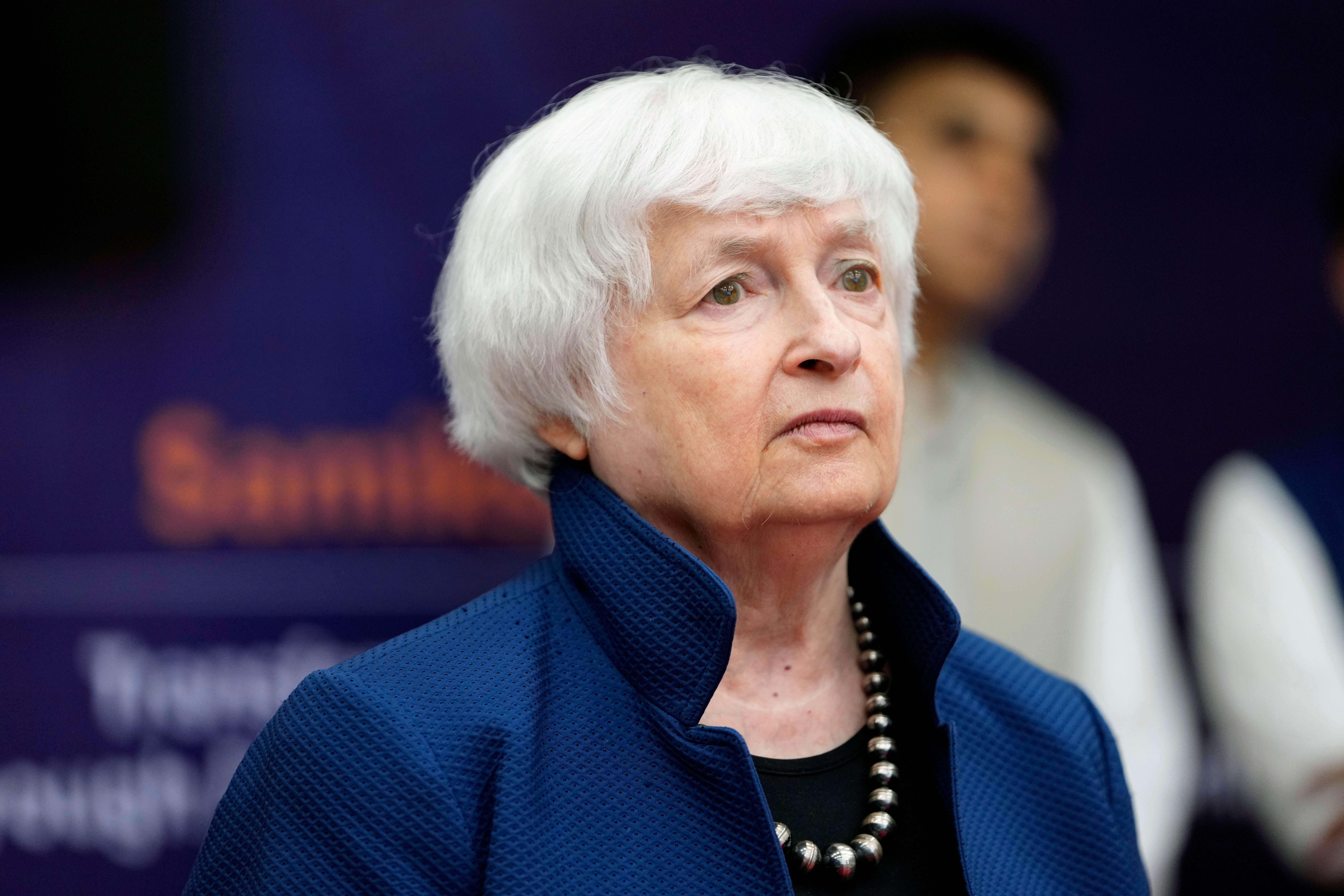Yellen details tighter scrutiny of investment plans of foreign-owned companies operating in the US
The Biden administration plans to increase scrutiny of the investment plans of foreign-owned companies operating in the United States

Your support helps us to tell the story
From reproductive rights to climate change to Big Tech, The Independent is on the ground when the story is developing. Whether it's investigating the financials of Elon Musk's pro-Trump PAC or producing our latest documentary, 'The A Word', which shines a light on the American women fighting for reproductive rights, we know how important it is to parse out the facts from the messaging.
At such a critical moment in US history, we need reporters on the ground. Your donation allows us to keep sending journalists to speak to both sides of the story.
The Independent is trusted by Americans across the entire political spectrum. And unlike many other quality news outlets, we choose not to lock Americans out of our reporting and analysis with paywalls. We believe quality journalism should be available to everyone, paid for by those who can afford it.
Your support makes all the difference.The Biden administration plans to increase scrutiny of the investment plans of foreign-owned companies operating in the United States.
“National security is a foremost priority, and we deploy a wide range of tools to safeguard it,” Treasury Secretary Janet Yellen said Thursday.
The federal government reviews and can block business activity of non-U.S. companies through the Committee on Foreign Investment in the United States, also known as CFIUS. At a conference dedicated to the committee, Yellen emphasized that CFIUS is adapting to a changing global economy as national security issues related to China are a primary consideration.
“As new threats and vulnerabilities emerge, our national security priorities shift in response,” Yellen said. “We've also renewed our focus on enforcement.”
The committee, chaired by the treasury secretary, is made up of members from the departments of State, Justice, Energy and Commerce. It has become the central tool for screening mergers, business agreements and data sharing.
Lawmakers have recently highlighted for possible review deals involving video sharing platform Tiktok and its Chinese parent company, ByteDance as well as X, the social media site formerly known as Twitter, and the PGA and LIV. The committee does not publicly comment on these deals because that is prohibited by law.
The committee has gained expanded powers in the past five years to investigate more business deals, and agency leadership is outlining how it intends to enforce rules on investing in the U.S.
In prepared remarks, Paul Rosen, the treasury undersecretary for investment security, said companies “can expect more compliance checks, questions, and site-visits," and will hire more third-party auditors to help identify business deals that could impact national security.
“We have been working to expand the number of monitor and auditor firms engaged in this work, including those who have not traditionally been active in the CFIUS space,” Rosen said.
He said CFIUS statistics show that last year 41 business transactions were reviewed and resulted in agreements that would change the deal terms and that overall there are more than 230 such agreements.
With increasingly tense relations between the U.S. and China, Biden administration officials have said Washington has no interest in “decoupling” from Beijing. But President Joe Biden has tried to create competitive advantages in response to China's economic and geopolitical rise. These range from investments in domestic production of computer chips and electric vehicles to limiting the exports of advanced technology to China and preserving the tariffs previously set up by President Donald Trump.
Biden signed an executive order designed to block and regulate high-tech U.S.-based investments going toward China, which covers advanced computer chips, microelectronics, quantum information technologies and artificial intelligence. CFIUS will be largely responsible for implementing the provisions of that order.
At a congressional hearing Wednesday, the chairman of the House Financial Services Committee said the executive order was “nonsense.”
“Congress has repeatedly dismissed this idea, and for good reason,” said Rep. Patrick McHenry, R-N.C., “If you oppose Beijing’s state-owned enterprises, you want more Western investment in China — not less.”